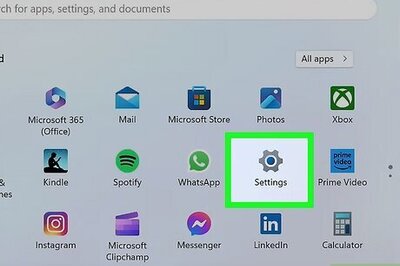
views
Some 219 million cases of malaria were reported worldwide in 2017, according to the World Health Organization, with 435,000 people having died from the disease in that year.
Malaria, a mosquito-borne monsoon disease is caused by Plasmodium parasites. The parasites are spread to people through the bites of infected female Anopheles mosquitoes, called "malaria vectors."
There are 5 parasite species that cause malaria in humans, and 2 of these species – P. falciparum and P. vivax – pose the greatest threat. It spends some of its lifecycle first in the liver, where it reproduces, and then it moves into the blood.
Conventional treatments based on artemisinin and its derivatives hold the parasite in check when it is in patients' blood, but the parasites are increasingly becoming resistant to these medications.
One solution is to attack the organism at an earlier stage in its lifecycle, when there are fewer parasites, and resistance might not have developed yet – namely, when it's in the liver.
According to Science Daily, Bill J. Baker and colleagues turned to sponges, which rely on an array of chemical defenses to fight off predators, in their search for a suitable pharmaceutical weapon.
The frigid waters of the Antarctic may yield a treatment for malaria.
Current medications against malaria are becoming less effective as drug resistance spreads.
But researchers report in ACS's Journal of Natural Products that a peptide they isolated from an Antarctic sponge shows promise as a lead for new therapies.
The team screened a collection of natural products extracted from a Southern Ocean sponge known as Inflatella coelosphaeroides.
One compound, which they dubbed friomaramide, blocked infection and development of the malaria parasite Plasmodium falciparum in liver cells in a culture dish as effectively as primaquine, one of the few existing liver-stage treatments. Friomaramide is also nontoxic to the liver cells themselves.
The researchers determined that the compound is a linear peptide with a distinctive structure, which they say makes it a promising framework for producing new leads for malaria treatment.




















Comments
0 comment